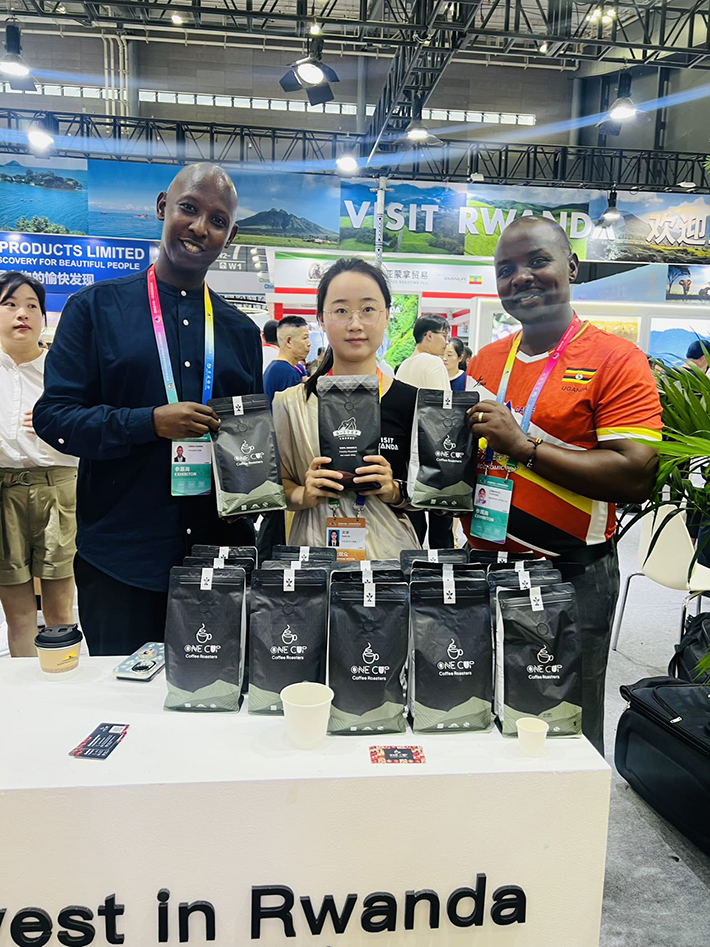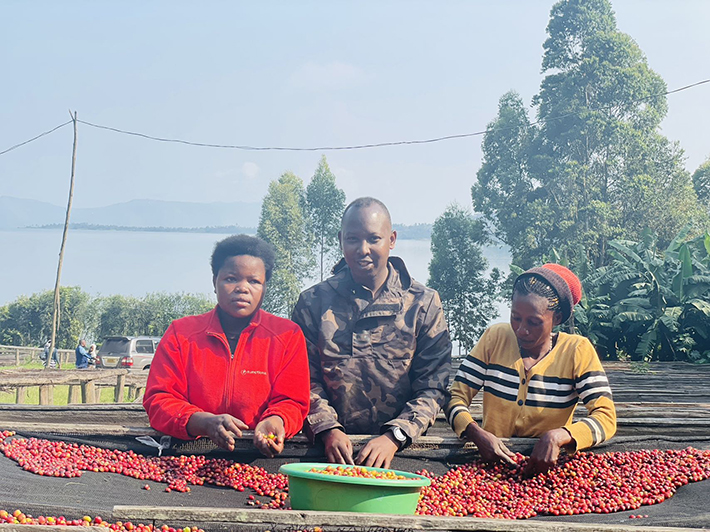Trading With Purpose


The city of Changsha recently concluded a remarkable chapter in China-Africa relations with the conclusion of the fourth China-Africa Economic and Trade Expo (CAETE). Since its debut in 2019, the event has expanded in size and stature, emerging as a dynamic hub where business, innovation, and cultural exchange intersect. This year’s expo drew over 30,000 participants from 53 African nations, 11 international organisations, and 27 Chinese provinces, each bringing fresh energy to the growing partnership.
Among the attendees was Rwandan entrepreneur Andrew Gatera, a familiar face at CAETE, whose quiet confidence spoke volumes. Known for his work in Rwanda’s coffee, tea, and tourism industries, Gatera has become a symbol of Africa’s evolving engagement with China.
“The first time I was here, I didn’t know what to expect,” he told ChinAfrica, his voice carrying a mix of humility and pride. “I only brought one product, and it wasn’t even well packaged. I didn’t get any orders, but I saw real potential.”
That early visit may not have yielded immediate returns, but it planted a seed, one that continues to grow across continents.
A platform for connections
Over the years, CAETE has grown from a conventional trade fair into a dynamic platform where ideas, products and cultures intersect. With each edition, Gatera’s confidence and business continued to grow.
“The second time I attended, I began to see the market for what it is: a vast network of potential partners and consumers,” he said. “By the third and fourth visits, I was making real contacts. Now we have a permanent space in Changsha to showcase our products, and we’re expanding to other cities as well.”
Gatera is not alone. Across the expo’s bustling halls, small business owners from Ethiopia, cocoa exporters from Ghana and tech innovators from Kenya shared similar stories. They are united not only by a common interest in the Chinese market, but also by a shared belief that CAETE helps to turn opportunity into real progress.
For Gatera, that progress is rooted in coffee, tea and tourism. Rwanda is known for its high-quality coffee, and he has built a sustainable brand. “We started with coffee but soon realised there was also strong interest in tea. Rwanda produces both CTC and specialty varieties. Now we are even creating Chinese-style blends using Rwandan leaves.”
But the expo is about more than just business. The atmosphere at CAETE is one of collaboration and trust. “You see familiar faces every year. The relationships are getting closer and closer,” said Gatera. The expo maintains a comprehensive database of attendees, making it easier for buyers and sellers to stay in touch and forge lasting business relationships.
The broader context of China-African trade accentuates the importance of this event. In 2024, according to China’s General Administration of Customs, trade between China and Africa reached an all-time high of $295.6 billion, cementing China’s position as Africa’s largest trading partner for the 16th consecutive year. At the 2025 expo alone, 176 projects were signed with agreements worth a total of $11.39 billion - a jump of almost 46 percent compared to the previous year.
These figures represent thousands of businesses, families and communities whose fortunes depend on the ebb and flow of international trade. For many African entrepreneurs, CAETE is not only a gateway to China, but also a bridge to a wider global audience.
The expo itself has become a bridge for cultural understanding. Workshops on product certification, packaging and digital marketing help African entrepreneurs to tailor their offerings for Chinese consumers. “It’s not just about selling a product,” Gatera stressed. “It’s about understanding what Chinese consumers want and building relationships that last.”
For many, the real strength of CAETE lies in its ability to nurture these relationships. Business deals may begin over a cup of Rwandan coffee or a shared meal, but what endures is the spirit of partnership. “We’re not just here to do business,” Gatera said. “We’re here to connect as people, share our cultures and build something that benefits both sides.”
Despite the energy and optimism, Gatera and his peers acknowledge that challenges remain. Many African products are still unfamiliar to Chinese consumers, and the investment needed to build distribution networks and raise brand awareness is substantial. “Most Chinese don’t know much about African products,” Gatera said frankly. “There’s a huge opportunity, but we also have a big task ahead of us to educate the market.”

Real impact
As another chapter of CAETE draws to a close, one thing is clear - the story is just beginning. With each edition, the momentum grows: more participants, more deals, and deeper partnerships. Since its launch, CAETE has helped African companies to sign contracts worth more than $67 billion with Chinese partners, according to both Chinese and African media.
Gatera remains upbeat about what lies ahead. “I believe the next expo will be even bigger. There’s room for new start-ups, established brands, and anyone who wants to grow,” he said. He pointed to the widening diversity of participants - from Nigerian tech firms to Tanzanian agricultural cooperatives - as a sign that these relationships are evolving and gaining depth.
At the policy level, governments on both sides are showing strong commitment to cooperation. China’s Belt and Road Initiative continues to drive infrastructure development across Africa. Meanwhile, African governments are working to harmonise trade rules and improve logistics to ease the movement of goods within and between regions.
Yet the real measure of success lies not in trade volumes or growth charts, but in the impact on people’s lives. In Rwanda, income from coffee and tea exports sustains thousands of smallholder farmers. In Kenya, Chinese investment has helped to modernise ports and create jobs. In Ethiopia, collaboration in textiles and manufacturing is opening up new opportunities for young workers. Across Africa, this partnership is about more than numbers: it is about entrepreneurs, workers and families who see the chance for a better future.
For Gatera, the journey is as personal as it is professional. “What I love about CAETE is that it’s about real people,” he said. “You meet someone, hear their story, and maybe you help to change their life a little. That’s what makes it meaningful.”


